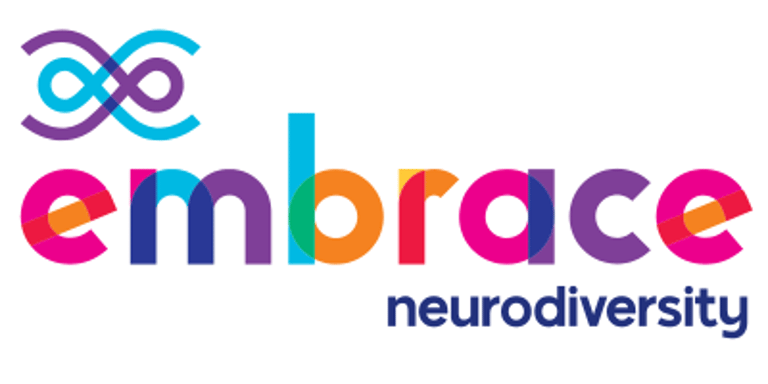language is a powerful tool
It can make people feel valued, help us understand each other better, and celebrate what makes each of us unique. The words we choose are important. That's why we want to explain some of the words we use and why we use them.
We also know everyone is different and will always use the words that you personally prefer. Everyone knows themselves best, and there's no strict rule for the right words to use when talking about yourself.
we use identity-first language
At Embrace Neurodiversity, we say "I am Autistic" instead of "I am a person with autism." Some people use person-first language to say "I am a person with autism" to make sure everyone remembers that they are a person first.
We feel empowered saying "I am Autistic". We see being Autistic is part of our identity and something that cannot be separated us. Most Autistic people prefer to use identity-first language as well (Toboas et al., 2023). It is important that we listen to and respect the preferences of what the majority of Autistic people prefer. That's why we use identity-first language.
Taboas, A., Doepke, K., & Zimmerman, C. (2023). Preferences for identity-first versus person-first language in a US sample of autism stakeholders. Autism : The International Journal of Research and Practice, 27(2), 565–570.
we describe support needs
Sometimes Autistic people are described as "high functioning" or "low functioning". We don't use these labels. We think functioning labels aren't fair because they are based on what other people think is "normal" or "right".
Saying someone is "low functioning" can lead to people underestimating their abilities and not noticing the things they are good at or the progress they make towards their goals.
Describing someone as "high functioning" can suggest that they don't need much help. But the truth is, even if someone seems to manage well in some areas, they might still face big challenges. Using "high functioning" can make others overlook these difficulties, meaning they might not get the support they really need.
Autism is a dynamic disability.
This means that the level of support needed by some Autistic people may change. They may be able to do something one day but be unable to another day.
Instead of using functioning labels, we prefer to talk about what supports or adjustments each person needs. This way, we can make sure everyone gets the support that's just right for them.
we use 'non-speaking'
Not all autistic people talk, but everyone finds their own way to communicate.
People often describe those who can't talk as "nonverbal." Describing someone as "nonverbal" might make it seem like they don't understand language or can't use communication tools, but that's not true.
Being "verbal" is really about using words to communicate, not just talking. Speaking is about moving parts of your body to make sounds. Just because someone can't talk doesn't mean they don't understand language or can't communicate in other ways. Some people might use special tools or devices such an Alternative and Augmentative Communication (AAC) devices to help them share their thoughts without speaking with their mouth.
At Embrace Neurodiversity we want to acknowledge and respect the different ways people communicate so we say "non-traditionally speaking", "non-speaking", or "alternatively communicating". And for people who do talk with their mouths, we say "traditionally speaking" or "mouth speaker."

